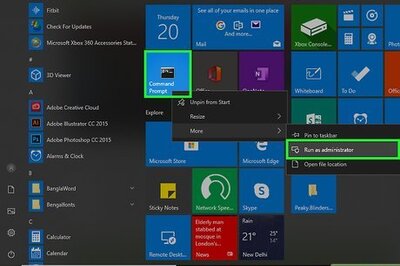
views
Mumbai: A trust controlled by Wipro's billionaire founder Azim Premji plans to sell up to 35 million shares or around a 1.4 per cent stake in the Indian software company on the stock market via a new auction process to fund education projects.
Premji and his family own about 79 per cent of India'a third-largest software exporter through various units that include the Azim Premji Trust, which will sell the shares.
The stake of about 35 million shares is valued at about 15.32 billion rupees based on its Monday market closing price of 437.75 rupees. The number of shares to be sold by Wipro's founder group represents about 1.4 per cent of the company's total shares.
Proceeds from the share sale will be used to finance the education activities of the Azim Premji Foundation, a non-profit unit set up by the founder to improve the quality of education in the country, a company statement said.
Wipro, which is also listed in New York, is India's 11th most valuable company with a market capitalisation of more than $21 billion.
In January, India's market regulator gave permission to shareholders of the country's top 100 companies by market value to raise funds by auctioning their stakes via stock exchanges.
As part of the auction process, Wipro said a floor price for the bidding would be given to the stock exchange in a sealed envelope before the opening of the sale on Wednesday.
The stock exchange will consider the bids after the closure of the auction and any bid below a floor price would not be considered for allocation, the company statement said.
Citigroup Inc, Morgan Stanley, UBS and Credit Suisse have been hired by Wipro as brokers for the share auction process, it said.
Wipro, which develops software applications, integrates IT systems and manages call centres, is part of India's export-driven $76 billion software services industry.
Premji, who is the chairman of Wipro, quit his studies at Stanford to take over his father's ailing vegetable oil business in the mid-1960s. He diversified the oil business into hydraulic cylinders in the 1970s and software services in 1980.



















Comments
0 comment